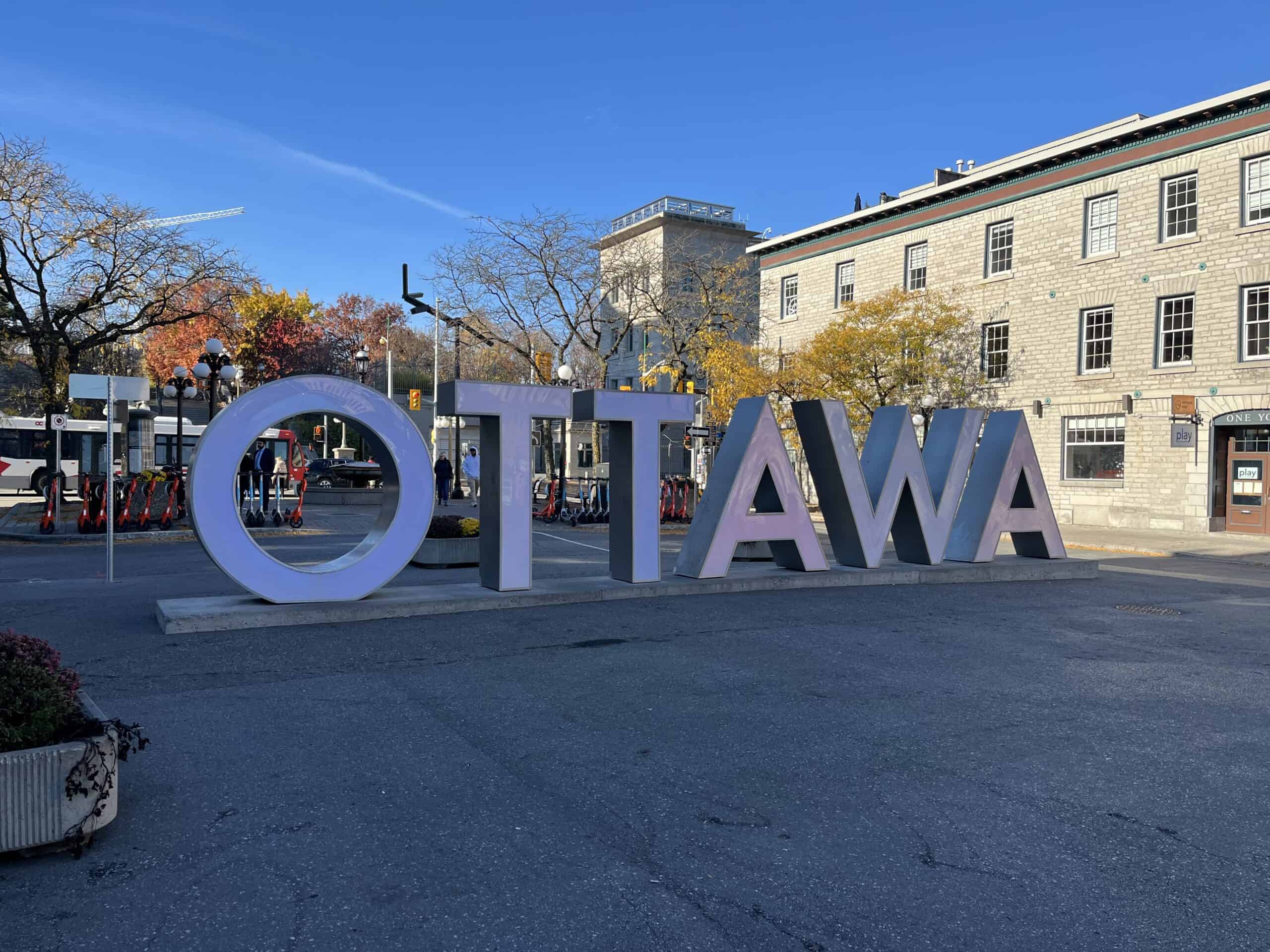Immigration minister Marc Miller’s frank dialogue with CBIE president Larissa Bezo drew the eye of over 1,300 delegates on the convention, who known as for an finish to the “blame sport” and the important have to rebuild model Canada.
Acknowledging a tumultuous 2024 – kicking off with the IRCC’s implementation of research allow caps that have been subsequently tightened alongside restrictions on PGWP eligibility – Miller professed that if the worldwide schooling sector is the Titanic, he was “beginning to really feel just like the iceberg”.
After repeated questioning from Bezo, Miller stated that there can be no extra “main” coverage modifications within the sector, however didn’t rule out future corrections. Final Friday’s announcement from the IRCC ending the SDS and the NSE – although not essentially a destructive improvement – casted some doubt on this dedication.
Right here, we dive into The PIE Information’s 4 key takeaways from the convention.
Broader coverage repercussions are but to be felt
On the finish of 2023, Canada’s worldwide schooling sector was value almost $50 billion, however for the reason that implementation of research allow caps in January, establishments have seen worldwide enrolments drop by 40-55% simply this yr, stated Bezo, warning of the “staggering” monetary impacts to return.
“The viability of our post-secondary schooling sector will cling within the steadiness on account of a lot of what unfolds within the subsequent yr or two,” stated Bezo, warning of layoffs at each schools and universities, in addition to the affect on Canadian college students, households, and the “trickle-down” results on communities and labour markets.
Whereas Miller stated that he “wasn’t insensitive to the financial impacts”, he made clear that his predominant precedence was to make sure “the credibility of the immigration system”.
There was a prevailing sense amongst delegates that the IRCC had not totally understood the affect of the repeated coverage modifications, and the complete extent of which had not but been felt.
“I don’t assume [Miller] actually understands the affect this has throughout the nation and the labour market, notably in rural and distant areas, notably in among the sectors, after which the affect that’s has on us as establishments,” stated Saskatchewan Polytechnic president Larry Rosia.
“Within the immediacy we’re going to see job losses, we’re going to see course closures and there will probably be some actually powerful selections to be made with out provincial authorities intervention, stated Vinitha Gengatharan, assistant vp, international engagement & partnerships at York College.
“We have been in a really sturdy progress trajectory within the final ten years and a few of these investments that have been made are going to be actually onerous to stroll again,” she added
Ontario schools have been notably onerous hit, with Seneca Faculty in Toronto briefly closing one among its campuses, impacting over 5,000 worldwide college students.
We have to get our provinces speaking to the federal authorities businesses
Vinitha Gengatharan, York College
This yr, analysis universities welcomed a “lengthy overdue” increase in funding introduced within the federal price range in April, though panellists raised considerations that declining worldwide scholar numbers would hinder establishments’ analysis capability.
“Worldwide graduate college students are double that of undergraduates at Western College,” stated affiliate vp, worldwide, Lily Cho, including that almost all STEM analysis college students come from outdoors of Canada.
“The picture of worldwide college students within the standard creativeness doesn’t mirror the essential half that they contribute to the mental capital of this nation,” stated Cho.
Demand for larger coordination and collaboration
The necessity for larger collaboration between federal and provincial governments was on everybody’s lips on the convention, with the current federal coverage halving Provincial Nominee Program targets highlighting the notably fraught relationship between Ottawa and the provinces.
In keeping with IDP’s newest Canadian sector survey, 67% of respondents agreed that authorities intervention was needed, however 69% disapproved of the regulation, citing the necessity for extra focused insurance policies and the shortage of stakeholder session by the IRCC.
“I’d problem [Miller] on how a lot he actually labored with the provinces… In British Columbia, we’ve got a great relationship with our authorities, and I’m fairly positive our ministry would have talked to us in the event that they have been getting data,” stated Rosia.
“I don’t assume that sufficient session passed off between the provinces and the federal initiative,” he added.
And but, as Miller repeatedly reminded delegates, he’s the minister of immigration. Underneath the Canadian structure, provincial governments bear duty for schooling and there’s no division of schooling on the federal stage.
Whereas there are large disparities in provincial insurance policies, provincial governments weren’t spared from blame, with Miller sustaining that the IRCC’s hand had been pressured by a “collective dropping of the ball” by provinces and establishments.
“I feel it’s nice that Mark Miller is prepared to return and sit with us as a result of I can’t bear in mind the final time our provincial minister of schools and universities spent that a lot time with worldwide schooling colleagues,” stated Gengatharan of York College, Ontario, which has been the toughest hit by the modifications.
“We have to get our provinces speaking to the federal authorities businesses. We’ve not seen that, in Ontario specifically – the biggest province with probably the most worldwide college students and unhealthy practices – we have to take duty for the areas the place we’ve got failed.
“This is a chance to scrub up our personal home,” stated Gengatharan.
Demand for larger coordination and collaboration
“We wish the federal government to embrace a extra complete view of worldwide schooling,” stated Bezo, reminding delegates that whereas inbound mobility has dominated headlines in 2024, the subsequent Worldwide Training Technique should embrace a broader view of internationalisation.
Boosting outbound mobility, which has slowed in recent times, and exploring TNE choices have been highlighted as methods establishments can improve internationalisation amid reducing inbound mobility.
One session by French and Canadian authorities officers highlighted the linguistic affinity between the 2 international locations and the alternatives for scholar exchanges offered by the France-Canada Youth Mobility Settlement in addition to a current strengthening of analysis ties since Canada joined Horizon Europe this yr.
What’s going to it take to rebuild ‘model Canada’?
“The truth is that we’re not going to recuperate in a single day. This can be a five-to-seven-year proposition by way of actually trying to rebuild, but it surely’s premised on the soundness of the coverage surroundings,” stated Bezzo, urging the minister for a interval of calm for the sector to recalibrate.
Whereas acknowledging the “unhealthy behaviour on the a part of a minority of actors that wanted to be addressed”, Bezo criticised the blanket coverage modifications for being imprecise and an “overcorrection”, inflicting detrimental hurt to Canada’s popularity.
Canadian establishments have seen worldwide enrolments plummet this yr, however many haven’t used up their whole PAL allocations, revealing the detrimental affect the coverage modifications are having on worldwide scholar demand.
In keeping with IDP’s scholar perspective survey, Canada has fallen from first to fourth place amongst potential worldwide college students for the previous two years.
“Once we discuss branding, the query is, have been we branding an schooling or an implicit or specific promise to change into a Canadian citizen or everlasting resident?” requested Miller.
Once we discuss branding, the query is, have been we branding an schooling or a promise to change into a Canadian citizen or everlasting resident?
Minister Marc Miller, IRCC
In settlement at the very least about reframing the narrative, CBIE has urged the federal government to challenge a extra welcoming message on the worldwide stage, warning that “our companions interpret the silence as us closing the door”.
And but, convention delegates additionally heard of the important want to speak the worth of Canadian worldwide schooling on the home stage amid rising anti-newcomer narratives.
In keeping with Miller, the IRCC’s restrictive immigration insurance policies have been “wildly standard” amongst Canadians, although Bezo expressed the sector’s “deep concern” concerning the rising anti-immigrant sentiment in Canada that stakeholders say have “emboldened” the IRCC.
Educators expressed hope in CBIE’s new Nationwide Dialogue which requires the institution of a pan-Canadian worldwide schooling council to gather information and drive a nationwide marketing campaign to reframe public narratives that blame worldwide college students for healthcare and housing shortages.
“We haven’t captured the general public with our storytelling efforts,” stated Gengatharan.
“With the fixed bulletins, individuals have actually tuned out and it’s tough to convey the affect on the home agenda. That’s one thing that we have to get our companies and trade speaking about.”
Thanks for taking the time to learn this text! I hope you discovered the knowledge insightful and useful. When you loved one of these content material, please take into account subscribing to our e-newsletter or becoming a member of our neighborhood. We’d like to have you ever! Be happy to share this text along with your family and friends, who may additionally discover it attention-grabbing.

Experienced writer and academic Isha Kamboj joins our team, sharing her expertise in education and training. With a post-graduate degree in Media Communication, she offers valuable insights into the latest trends and best practices in the field. Exciting addition to our website’s content.

